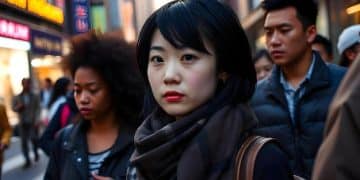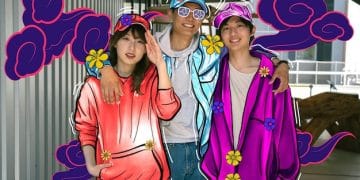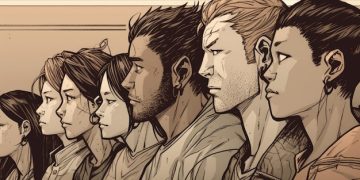Shonen Anime & Mental Health: Resilience and Overcoming Adversity
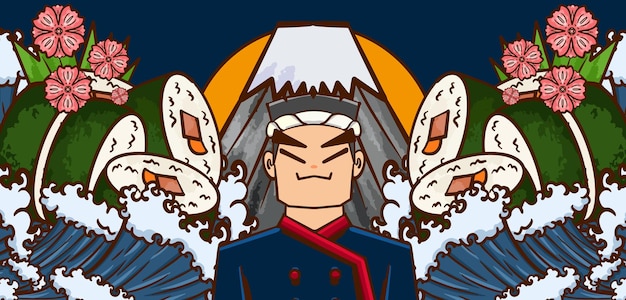
Shonen anime frequently explores themes of resilience, determination, and overcoming adversity, offering viewers valuable insights into mental health and coping mechanisms.
Shonen anime and mental health: Exploring themes of resilience and overcoming adversity is a topic that resonates deeply with many viewers. These anime often depict characters facing immense challenges, providing a framework for understanding and addressing personal struggles.
The Power of Shonen Anime in Portraying Resilience
Shonen anime, known for its focus on young male protagonists and action-packed storylines, surprisingly offers valuable lessons in resilience. These stories often feature characters who face seemingly insurmountable odds, teaching viewers about perseverance and the importance of never giving up.
Overcoming Obstacles: A Common Shonen Theme
One of the defining characteristics of shonen anime is the protagonist’s journey to overcome obstacles. This theme is not just about physical strength but also mental fortitude.
The Importance of Perseverance
Shonen characters consistently demonstrate the importance of perseverance. They train relentlessly and face setbacks with unwavering determination, showcasing the value of hard work and dedication.
- Naruto Uzumaki (Naruto): His journey from a village outcast to a respected Hokage exemplifies perseverance and the power of belief in oneself.
- Monkey D. Luffy (One Piece): Luffy’s unwavering determination to become the Pirate King, despite facing countless powerful adversaries, showcases resilience.
- Izuku Midoriya (My Hero Academia): Born without a Quirk, Deku’s relentless pursuit of his dream to become a hero highlights the importance of hard work and never giving up.
Ultimately, the way shonen anime portrays resilience emphasizes the significance of staying true to oneself and continuously striving for one’s goals, even in the face of adversity. It’s a powerful message that resonates with audiences of all ages.
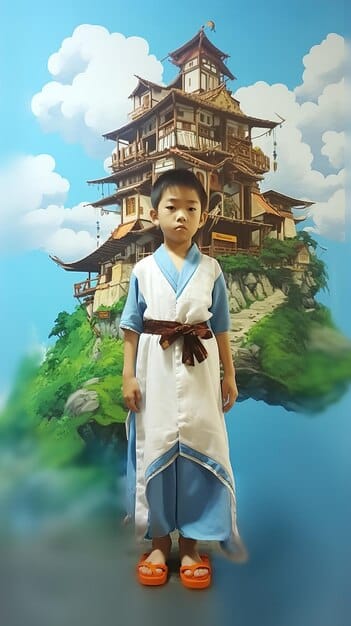
Depicting the Struggle with Isolation and Loneliness
Beyond action and adventure, shonen anime often delves into the more nuanced aspects of mental health, such as isolation and loneliness. These themes create depth and relatability, allowing viewers to connect with characters on a deeper emotional level.
Characters Facing Isolation
Many shonen protagonists experience isolation as a central part of their character arc, often due to their unique circumstances or past traumas.
The Impact of Loneliness on Mental Health
The portrayal of loneliness in shonen anime sheds light on its impact on mental health, showcasing how it can affect self-esteem, confidence, and overall well-being.
- Gaara (Naruto): Burdened by a tragic past and ostracized by his village, Gaara’s initial isolation leads to a destructive path until he finds connection and acceptance.
- Ichigo Kurosaki (Bleach): Haunted by the death of his mother, Ichigo grapples with feelings of guilt and isolation, driving him to protect others and find meaning in his purpose.
- Eren Yeager (Attack on Titan): Eren’s anger and determination stem from the loss and isolation he experiences, highlighting how trauma can shape one’s worldview and actions.
In many ways these depictions are a metaphor for real struggles people have in their life, and provides viewers a chance to engage and maybe learn something about themselves.
Finding Strength in Friendship and Teamwork
One of the most uplifting aspects of shonen anime is its emphasis on friendship and teamwork. These bonds provide characters with vital emotional support and demonstrate the importance of social connections in overcoming adversity.
The Power of Friendship
Shonen anime consistently portrays friendship as a source of strength and resilience. Characters often rely on their friends for support, encouragement, and motivation.
Teamwork as a Catalyst for Success
Teamwork is another key theme. Characters working together, combining their unique skills and abilities, can achieve goals that would be impossible alone.
- Team 7 (Naruto): The bond between Naruto, Sasuke, and Sakura showcases how diverse individuals can come together, support each other, and achieve greatness.
- The Straw Hat Pirates (One Piece): Luffy’s crew exemplifies teamwork, with each member bringing unique skills and strengths to the team, allowing them to overcome formidable challenges.
- U.A. High School Class 1-A (My Hero Academia): The students of Class 1-A learn to rely on each other, developing strong bonds and working together to become heroes.
The theme of friendship and teamwork in these anime helps convey to viewers that they are not alone in their own struggles, and reinforces the importance of good people being there to support and encourage them on their own journey.

Addressing Trauma and Mental Health Challenges
While shonen anime often focuses on action and adventure, many series also address the serious themes of trauma and mental health challenges faced by their characters. This allows for a deeper exploration of human psychology and offers viewers insights into coping mechanisms.
Characters Grappling with Trauma
Several shonen characters have experienced significant trauma, which shapes their personalities, motivations, and relationships.
Coping Mechanisms and Healing
The depiction of characters using various coping mechanisms to deal with their trauma can be particularly valuable. These mechanisms can include therapy, self-reflection, and seeking support from others.
- Ken Kaneki (Tokyo Ghoul): Suffering severe trauma, Kaneki struggles with his identity and mental health as he navigates the ghoul world, eventually finding ways to cope through self-acceptance and support.
- Guts (Berserk): Haunted by a traumatic past, Guts copes with his pain by seeking revenge and protecting those he cares about, showcasing resilience in the face of unimaginable darkness.
- Shinji Ikari (Neon Genesis Evangelion): Shinji’s struggles with depression and anxiety are central to the series, highlighting the importance of mental health awareness and seeking help.
By delving into these topics, shonen anime can help normalize conversations about mental health and encourage viewers to seek help if they are struggling with similar issues.
The Role of Mentors in Supporting Mental Well-being
Mentors play a significant role in the lives of shonen protagonists, providing guidance, support, and wisdom. These relationships highlight the importance of having positive role models and the impact they can have on mental well-being.
Mentors as Sources of Guidance and Support
Mentors offer characters a sense of direction and purpose, helping them navigate challenges and develop their full potential. They also provide emotional support, offering encouragement and reassurance during difficult times.
The Impact of Positive Role Models
Positive role models can have a profound impact on mental well-being, helping characters build self-esteem, confidence, and resilience.
Here are some of the most iconic Mentors in Shonen Anime:
- Kakashi Hatake (Naruto): Kakashi’s guidance and wisdom help Naruto develop his skills, confidence, and sense of purpose.
- Master Roshi (Dragon Ball): Master Roshi teaches Goku the importance of discipline, hard work, and staying true to oneself.
- All Might (My Hero Academia): All Might inspires Deku to become a hero, providing him with the necessary skills, support, and encouragement.
Good mentors not only provide guidance, but they also help instill values, build character, and promote mental well-being. These are the kind of lessons viewers can bring into their own lives, and improve from.
Criticisms and Limitations of “Shonen Logic”
While shonen anime offers many positive messages about resilience, friendship, and overcoming adversity, it’s also important to acknowledge its limitations. Some critics argue that the genre’s emphasis on “shonen logic”—the idea that hard work and willpower can overcome any obstacle—can be unrealistic and even harmful. This is especially true when dealing with mental health issues.
The Problem with “Shonen Logic”
“Shonen logic” can oversimplify complex issues. This is especially true when dealing with mental health.
The dangers of Idealism
The idealized portrayals of friendship and teamwork in shonen anime can create unrealistic expectations and leave viewers feeling inadequate if they struggle to form similar connections in their own lives.
- Oversimplification of Mental Health: The idea that mental health problems can be solved simply through willpower and determination can be dismissive of the real struggles people face.
- Unrealistic Expectations: The idealized portrayals of friendship and teamwork can create unrealistic expectations and leave viewers feeling inadequate if they struggle to form similar connections.
- Ignoring Systemic Issues: Shonen anime often focuses on individual struggles, overlooking the systemic issues that contribute to mental health challenges.
It’s so easy to get swept up and just consume all of the content you find enjoyable, but taking a step back and looking at it differently can help make it more enjoyable while also benefiting your life.
| Key Point | Brief Description |
|---|---|
| 💪 Resilience | Shonen anime emphasizes overcoming obstacles through perseverance. |
| 🤝 Friendship | Bonds provide emotional support and aid in teamwork. |
| 🤕 Trauma | Characters often grapple with trauma, showcasing coping mechanisms. |
| 🧑🏫 Mentors | Mentors guide protagonists, emphasizing positive role models. |
Frequently Asked Questions
▼
Shonen anime often showcases characters who face significant setbacks but continue to strive toward their goals, emphasizing the importance of perseverance and determination. This helps to promote a mindset of resilience.
▼
Friendship is portrayed as a vital source of strength in shonen anime. Characters often rely on their friends for emotional support, motivation, and assistance in overcoming challenges. It’s portrayed as an endless positive reinforcement loop.
▼
Some shonen anime series tackle mental health issues by depicting characters dealing with trauma, isolation, and anxiety. By showcasing these struggles, the anime promotes awareness and normalization of mental well-being.
▼
“Shonen logic” can oversimplify complex issues, suggesting that hard work and willpower can solve any problem. This can be unrealistic and dismissive of the real struggles individuals face, particularly with mental health.
▼
Mentors play a crucial role in providing guidance, support, and wisdom to the protagonists. They help characters build self-esteem, develop coping mechanisms, and navigate challenges, fostering positive mental well-being and growth.
Conclusion
In conclusion, while shonen anime offers many insightful perspectives on resilience, friendship, trauma, and the importance of mentorship, it’s essential to approach these themes with a critical eye. By acknowledging both the strengths and limitations of the genre, viewers can gain a more nuanced understanding of mental health and its portrayal in popular media.
